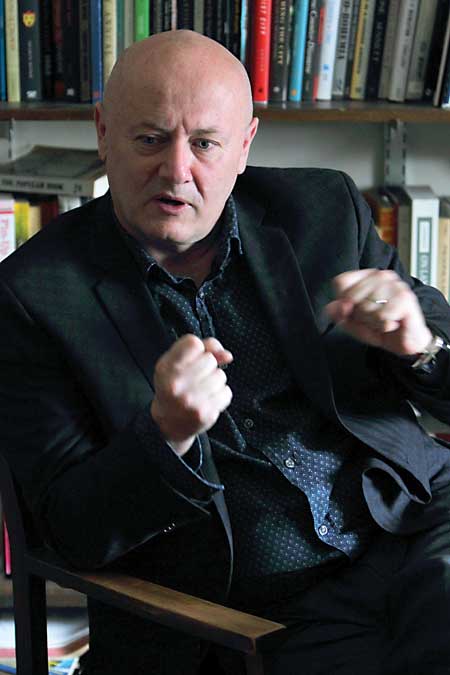
By Elisabeth Faure
For many of us, a job that allows us to immerse ourselves in nightlife culture sounds too good to be true. But for Will Straw, Director of the McGill Institute for the Study of Canada (MISC), it’s just another day at the office.
“I’m interested in the night for a lot of reasons,” says Straw, who holds a Ph.D. in Communications from McGill, and is a Professor in the Art History and Communications Department. “One is that, according to historians, Western societies have gone through a process of “nocturnalization” over the last few centuries, with various kinds of activities moving later and later into the night. If you look at the history of eating in France, for example, you find that lunch and dinner time moved forward by about two hours from the 1700s to the 1900s. I’m interested in seeing whether that’s still true.”
Straw’s interest in nightlife has driven him to create “The Urban Night” research project, dedicated to studying nightlife in cities and the ways in which cities regulate the night. Started with a grant from the Social Sciences and Humanities Research Council, Straw has built a website devoted to the subject, with the help of a student hired under the Arts Research Internship Award program, and colleagues like McGill Law Professor Tina Piper. The Urban Night project has already held workshops on the theme in Windsor/Detroit, and in Montreal, and the MISC recently co-sponsored a POP Montreal panel on the topic, where Straw spoke.
Straw’s nightlife research, which takes him around the world, has exposed him to many emerging trends in urban living after dark. “Certainly, the expansion of nuits blanches (all-night art exhibitions) to almost every major city of the world is worth noting,” says Straw. Also, “it’s harder and harder to see movies in theatres during the daytime, though this was common a few decades ago.”
Foodie culture is also making its mark. “In Montreal, as in lots of other places, restaurants seem to be replacing music venues and other night-life sites, as food culture continues to expand,” Straw says. And rising nightlife popularity reflects lower crime levels. “Particularly in the global North and West, you see people occupying the centres of cities later and later at night.”
Straw also encounters a lot of nightlife misconceptions. “The biggest misconception for a long time was that nightlife was something cities should just tolerate and try to control,” he says. But in the 1990s, this thinking began to shift, as cities woke up to the economic benefits of a thriving nightlife. “Once, it was thought that cities should handle the night by limiting its activities and ending them as soon as possible,” Straw explains. “Now, cities think that a safe and healthy night is one which offers a wide range of options, from eating to shopping, and not just drinking in bars. The idea that you should close down nightlife early to keep cities safe has likewise declined.”
Straw’s nocturnal research isn’t limited to nightclubs and bars. “Airports and hospitals and other places that stay open all night are curious kinds of places – self-contained, 24-hour worlds, even if we wouldn’t call them cultural,” says Straw. He has seen examples of this in places as diverse as Mexico City, where “you can always find someplace open at any time, to eat, or drink, or dance,” to his own hometown of Hamilton, Ontario, where, “supermarkets and other amenities stay open all night to handle shift-workers.”
What’s next for The Urban Night? Straw, who will be taking a six-month sabbatical leave in the New Year, has plenty of nightlife-related activity planned for 2014.
“In February, we’ll be holding a conference in Mexico City on the urban night in Mexico City and Montreal,” says Straw. “I’m doing special issues of two academic journals on the topic – one on the “visuality” of night (lighting, night-time aesthetics and so on) and another one on the way cinema deals with the night.” Ultimately, “My dream,” says Straw, “is to build an international network involving scholars, city administrators, and cultural creators, from places like Brazil, the United Kingdom, Germany, and so on.”
Definitely, something worth staying up for.
